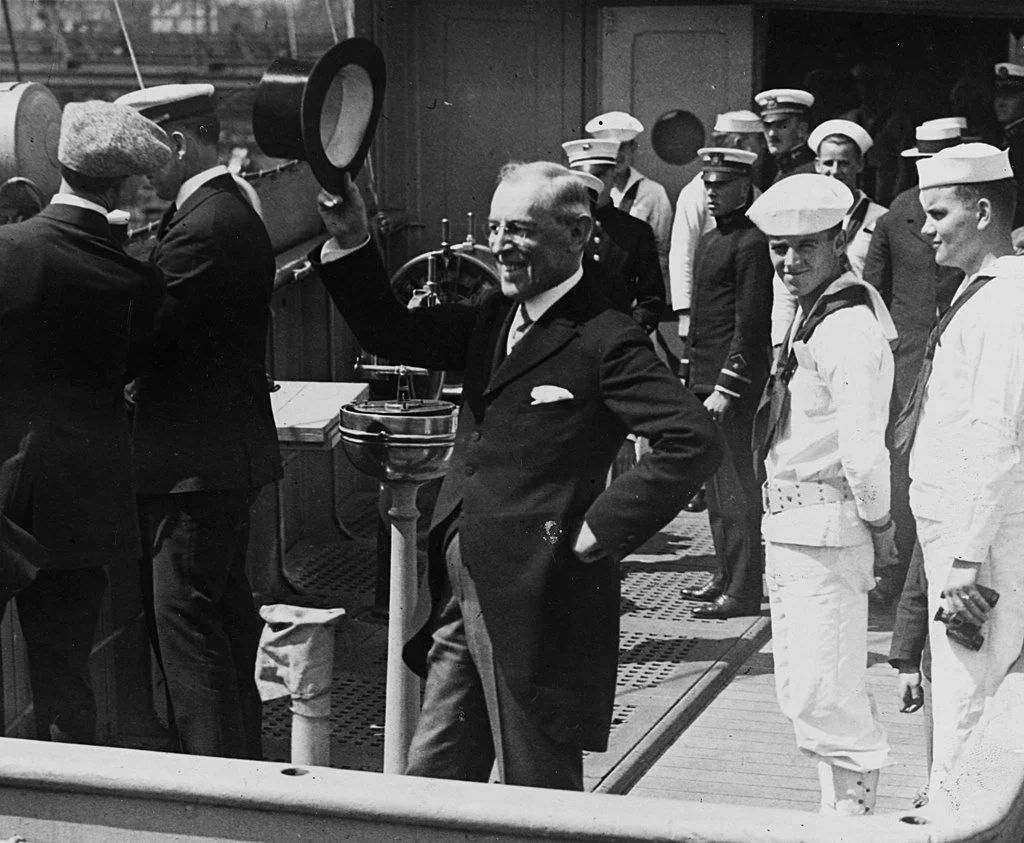Over 380,000 African-American troops served in World War One according to the US National Archives. Here, Chris Fray looks at the role the Black Americans played in the war in the context of the time.
The ‘Hellfighters’ - Soldiers of the 369th (15th N.Y.), 1919. They were awarded the Croix de Guerre for gallantry in action.
Most African-American troops were deployed to labor divisions within the US providing manual labor for the war effort.[1] Even the Black soldiers who were deployed to France were first put to work unloading supplies from ships, joining the supply troops known as ‘Stevedores.’ These battalions did not fight but aided by building bridges, repairing roads and ensuring the fighting troops were constantly supplied.
The uncomfortable truth of the matter is that the US high command were unsure whether White US troops would mix with Black troops and fight alongside them. Although slavery had been abolished in 1865 with the 13th Amendment to the Constitution, over half a decade later the rights of Black Americans had progressed very little. Attacks and racial violence were common, especially in the Southern states. At this time, US society was fully segregated and would remain so until 1948. The concept of ‘separate but equal’ had been adopted across the country, prohibiting Blacks to use White facilities such as bathrooms, schools and railcars by Law.
At the time when war broke out, thousands of Black-Americans were moving from the country to industrial centers in what is known as the Great Migration.[2] As the US economy grew, many more opportunities became available in cities, especially with labor shortages due to the War. Organizations such as the NAACP were formed, campaigning for the advancement of Black people, consolidating more confidence and power than before. One of the first mass protests in US history took place on the eve of the First World War in 1917, New York, known as The Silent Parade. Led by NAACP, 10,000 African Americans marched down 5th Avenue, New York in protest to a recent racist attack in East St. Louis where perhaps up to 200 African Americans were killed and 6,000 were made homeless due to racially motivated arson.[3] With this new Black organization came increased resentment and anxiety from Whites and especially the Police, leading to more and more violence.
Action in the war
Although very few in comparison to White soldiers, there were a number of African-Americans who did see action in the First World War. The most celebrated were the 15th New York “colored” Infantry Regiment, renamed US 369thInfantry Regiment but also, and much more dramatically known as the ‘Harlem Hellfighters.’ Harlem was home to 50,000 of the 60,000 African-Americans living in New York’s Manhatten in the 1910s.[4] After deciding that Regiments were better led and filled by soldiers of the same race, the 369th Infantry were assigned by the US army to the French army who, as a body were much more open to integration in their forces. French colonial troops had been integrated into the French army for decades.
The ‘Hellfighters’ quickly became renowned for their bravery and ferocity on the battlefield, in particular by the German troops they were fighting- who originally coined the term ‘Hellfighters.’ Their motto, “Don't Tread On Me, God Damn, Let's Go," sums up their determination and resilience very well. It was their resilience which they became famous for- The 369th Regiment spent more time in continual combat than any other US division of its size, with a staggering 191 days in the front line trenches.[5] One particular episode on 15th May 1918 shows the fortitude and strength of the soldiers of the Regiment. When on watch duty, Private Henry Johnson and Private Needham Robert’s position was attacked by German troops. The two soldiers fought off 12 Germans in brutal hand to hand combat, saving the position but Johnson receiving 21 wounds in the fight.[6] After the war, the Regiment as a whole were awarded the Croix de Guerre by the French Army and returned to America as heroes.
Legacy
The irony of fighting for freedom abroad when you don’t have the benefit of it at home, can’t have been lost on these soldiers. However the success and bravery of the ‘Harlem Hellfighters’ saw the first serious calls for desegregation of the US army. Although desegregation was not signed until 1948 by President Harry Truman, the ‘Hellfighters’ paved an important way for recognition and opportunity for Black soldiers to come.
Did you enjoy the piece? If so, join us for free by clicking here.
[1] US Department of Defense - https://www.defense.gov/News/News-Stories/Article/Article/1429624/african-american-troops-fought-to-fight-in-world-war-i/#:~:text=More%20than%20380%2C000%20African%2DAmericans,to%20labor%20and%20stevedore%20battalions.
[2] US Library of Congress - https://www.loc.gov/exhibits/civil-rights-act/segregation-era.html
[3] https://beinecke.library.yale.edu/1917NAACPSilentProtestParade
[4] Smithsonian Magazine - https://www.smithsonianmag.com/history/one-hundred-years-ago-harlem-hellfighters-bravely-led-us-wwi-180968977/
[5] National Museum of African American History & Culture - https://nmaahc.si.edu/explore/stories/remembering-harlem-hellfighters#:~:text=Some%20members%20of%20the%20Harlem,to%20the%20369th%20Infantry%20Regiment.








